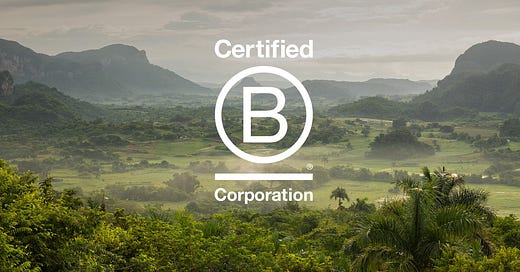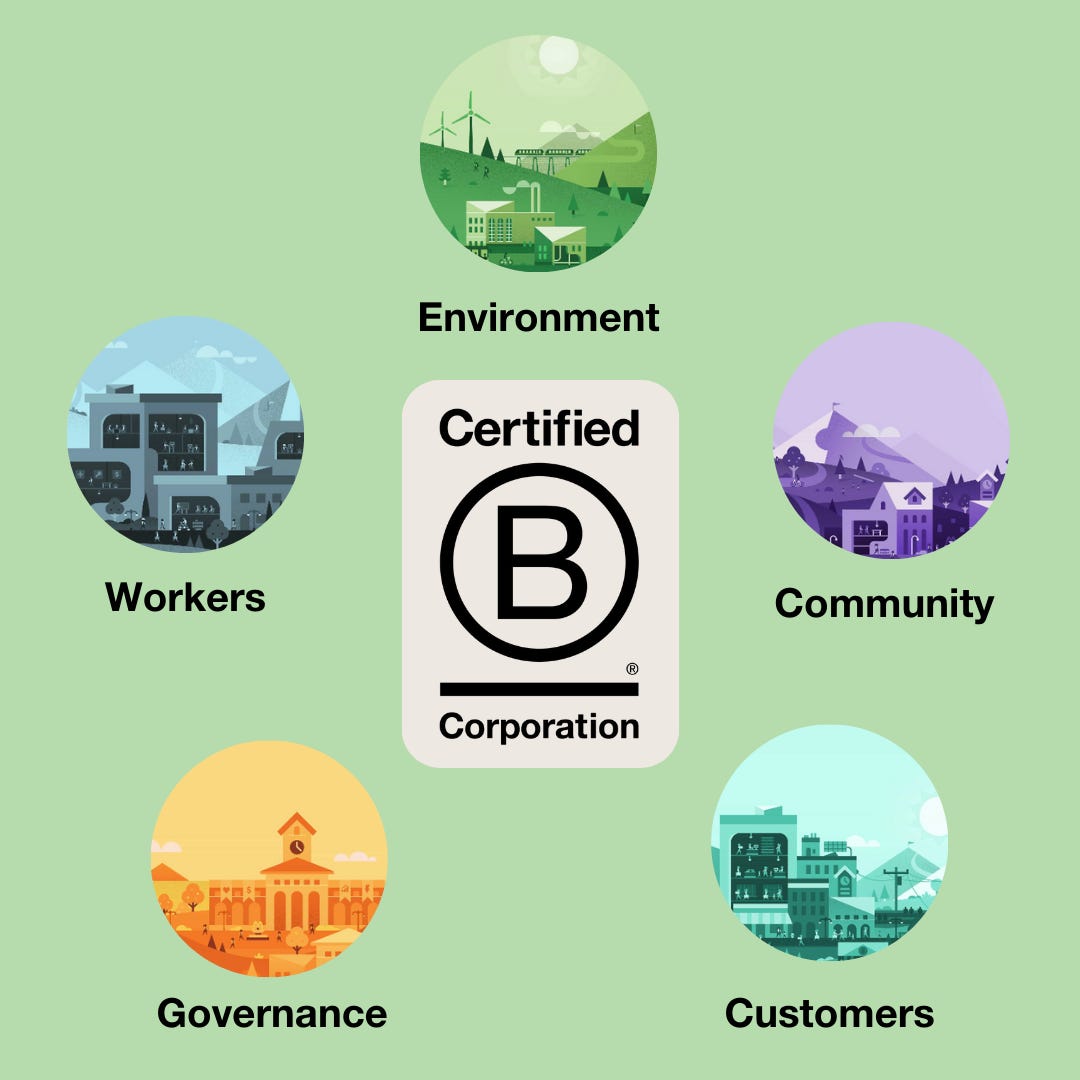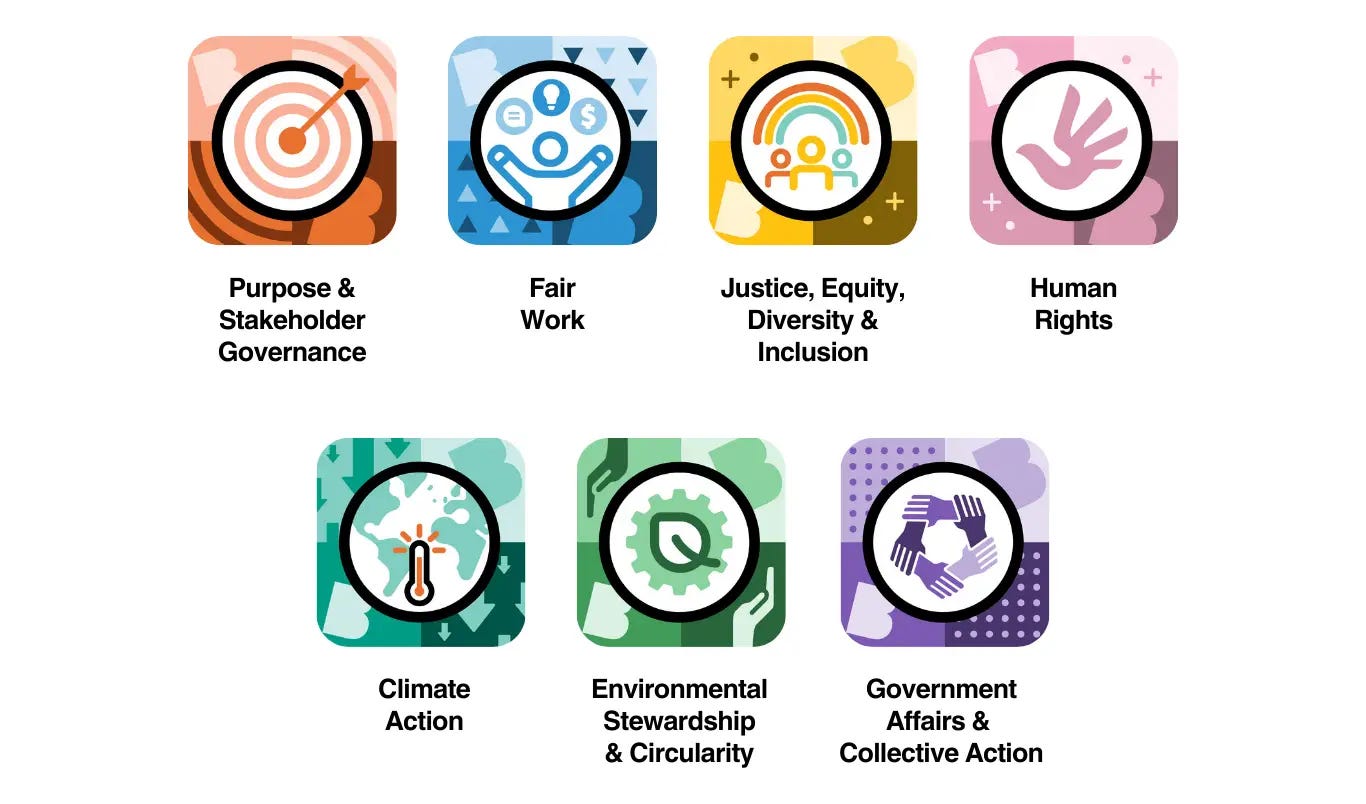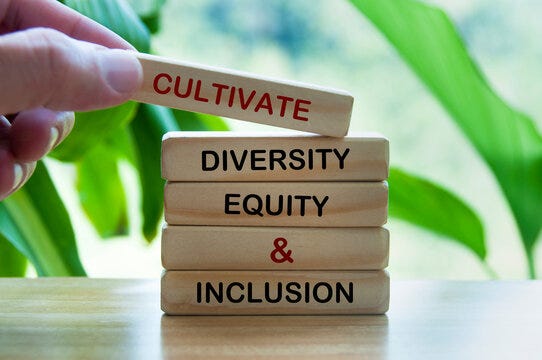Breaking Down the New B Corp Standards
What are the new B Corp Standards, and how can your organization ensure compliance?
In today’s increasingly environmentally and socially conscientious business landscape, organizations are looking for ways to showcase their commitment to ethical practices and sustainability. One of the most well-regarded certifications that demonstrates this commitment is the B Corp certification. B Corp (Certified Benefit-for-all Corporation) is a for-profit organization that certifies organizations have voluntarily met high standards of social and environmental performance, transparency, and accountability. The certification is granted by B Lab, a non-profit organization that was founded in 2006 with a mission to support and promote businesses that use the power of markets to create positive social and environmental change.
B Corps operate under the principle that businesses should be accountable to all stakeholders, not just shareholders. This approach is often referred to as the Triple Bottom Line, which focuses on three core pillars: People, Planet, and Profit1. The idea is that companies should be equally committed to fostering a positive impact on society and the environment, while also maintaining financial sustainability.
How Does a Company Become a B Corp?
Becoming a B Corp involves a rigorous certification process. To be certified, an organization must meet high standards in several key areas. The process requires companies to pass a B Impact Assessment, which evaluates their business practices against the B Lab’s rigorous standards. Companies must also undergo periodic reassessments to maintain certification, ensuring continuous improvement and impact.
Furthermore, B Corp certification is tailored to the specific size and sector of the company. There are differentiated requirements based on these factors, as well as an equity mechanism to ensure that businesses in different countries and territories can meet local regulatory requirements while adhering to the global B Corp standards. Once certified, companies are required to pay an annual certification fee, which varies based on their revenue.
The standards for B Corp certification are grouped into five core categories: Governance, Workers, Community, the Environment, and Customers.
Overview of the B Lab Standards
B Lab’s standards are based on a comprehensive evaluation of an organization’s practices across various areas. The key purpose of these standards is to ensure that B Corps are genuinely operating with social and environmental responsibility in mind, not merely pursuing profit.
The five main categories of the B Corp standards are2:
Governance: This includes how a company is run, its accountability, and its transparency in decision-making processes.
Workers: This examines the company’s practices concerning employee welfare, including fair wages, benefits, and work-life balance.
Community: B Corps must demonstrate their commitment to the local and global community, particularly in areas like job creation, charitable contributions, and partnerships with other organizations that promote social welfare.
Environment: Environmental stewardship is a key pillar, focusing on a company’s efforts to reduce its ecological footprint through energy efficiency, waste management, and responsible sourcing.
Customers: The standards also focus on how a company engages with its customers, ensuring that products and services create value not only for the business but also for society at large.
These standards are dynamic, constantly evolving to keep pace with changing market expectations and emerging challenges in sustainability.
Understanding the Updated B Corp Standards
Due to increasing pressure from the climate crisis and social inequality, B Lab has updated its certification standards to further enhance the social and environmental impact of certified companies. The organization hopes that by strengthening standards, it can continue to guide companies towards creating profound and lasting change through business. Two key updates are at the heart of the new standards3. These two updates are:
Meeting the Foundation Requirements
The Foundation Requirements ensure that basic eligibility requirements are met before the Impact Assessment begins. Companies that generate more than 1% of their annual profit from activities harmful to stakeholders are not eligible to become B Corps. Harmful activities include fossil fuel production, gambling, pornography, prisons or detention centers, tobacco, and weapons.
Exact eligibility requirements will vary based on organizational size and scope. However, to achieve a B-Corp certification, organizations must have been in operation for 12 months, be legally incorporated, and comply with all national and local laws. They must also have demonstrated their commitment to stakeholder governance by integrating these principles into their legal frameworks and signing the B Corp Declaration of Interdependence. Organizations must also complete a risk profile and conduct a risk assessment using B Lab’s profiling tool.
Take Action Across Key Impact Topic Areas
In order to comply with the new B Corp standards, organizations are required to take action across important environmental, social, and governance (ESG) areas. Meaningful action in these areas will help demonstrate that businesses are operating responsibly and are taking impact management measures. Impact topic requirements are determined by an organization’s size, sector, and industry. However, some key ones include: Purpose & Stakeholder Governance, Climate Action, Human Rights, Fair Work, Environmental Stewardship & Circularity, Justice, Equity, Diversity & Inclusion, and Government Affairs & Collective Action.
Other key changes include:
Increased Rigor: The evaluation process now includes more comprehensive assessments across multiple areas, with an increased emphasis on demonstrating measurable impact.
Sector-Specific Adjustments: The standards are now more attuned to the challenges and opportunities specific to different sectors. For instance, tech companies may be required to show transparency in data privacy, while manufacturing companies must demonstrate efforts in resource efficiency and waste reduction.
Equity and Inclusion Focus: There is a stronger emphasis on promoting equity and inclusion within companies, particularly concerning gender, racial, and socioeconomic diversity.
Expanded Global Equity Measures and Accessibility: Adjustments have been made to make the certification process more inclusive for companies operating in different regions, allowing businesses from a wider range of countries and territories to participate in the certification process.
Ensuring Compliance with the New Standards
As B Corp standards continue to evolve, it is essential for organizations to stay up-to-date on the latest changes and adapt their operations accordingly. Earning and maintaining B Corp certification is not simply a symbol of excellence; it represents a dedication to making a lasting, meaningful impact on the world.
To ensure your organization remains compliant with the new B Corp standards, there are several key steps to take:
First, thoroughly review the updated B Impact Assessment to familiarize yourself with the changes. This will help you identify the specific areas of your business that may need improvement.
Next, prioritize continuous improvement. B Corp certification is an ongoing commitment, not a one-time achievement. Regularly assess your practices and implement strategies to further enhance your social and environmental impact.
Lastly, seek out resources and support. Utilize the tools and guidance provided by B Lab and other relevant organizations to help navigate the certification process and maintain your status as a B Corp.
Ultimately, becoming a B Corp is more than just meeting a certification standard, it is about demonstrating your company’s commitment to long-term positive change. By adhering to the new B Corp standards, your organization can help create a more just, sustainable, and inclusive economy for all.
This Week in Sustainability is a weekly email from Brightest (and friends) about sustainability and climate strategy. If you’ve enjoyed this piece, please consider forwarding it to a friend or teammate. If you’re reading it for the first time, we hope you enjoyed it enough to consider subscribing. If we can be helpful to you or your organization’s sustainability journey, please be in touch.
https://bcorporation.eu/what-is-a-b-corp/what-does-b-corp-certification-mean/
https://www.bcorporation.net/en-us/standards/
https://www.bcorporation.net/en-us/standards/performance-requirements/













Thanks for breaking down the new B Corp standards! I'm looking forward to diving into them as I develop my own B Corp and recertify in a little while.